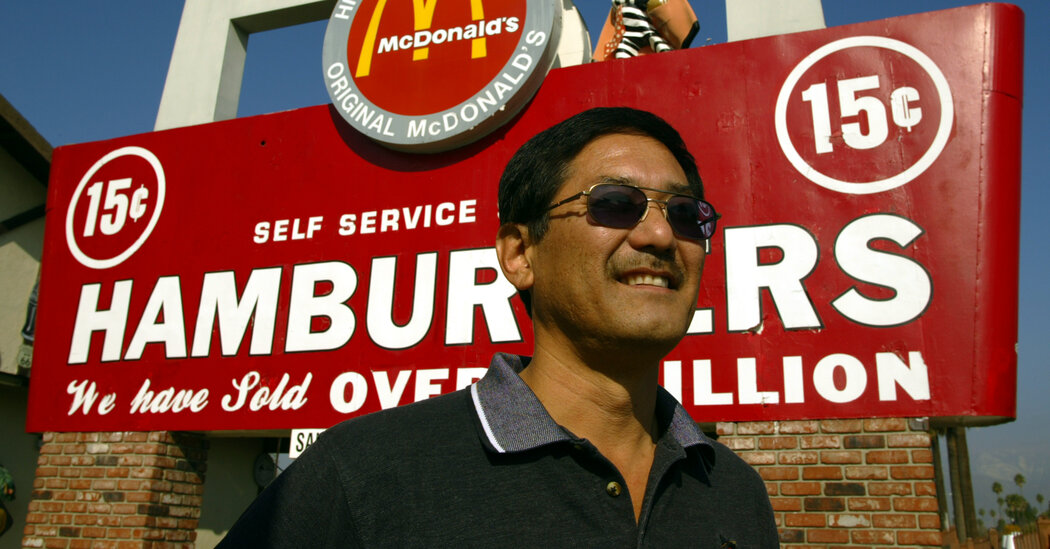The gas station reopened in 2008, and its balky sign was lit again in 2019.
Mr. Okura “did more for California’s Route 66 than any other person in preservation,” Beth Murray, a photographer, wrote on Facebook. “We have lost someone who saw a goal and made it happen, saw a town and made it prosper, saw a dream and made it come true.”
Albert Okura was born on Dec. 3, 1951, in Wilmington, Calif., to Tsuyoshi and Chiyoko Okura. His father was a semiprofessional baseball player. His grandparents were farmers who had immigrated from Japan in the 1910s.
As Japanese Americans, his parents had been held in detention camps during World War II. His father was serving in the U.S. Army when he was rounded up.
“I wasn’t smart enough to be a lawyer or scientist, much less a doctor or dentist (my mother’s personal favorite),” Mr. Okura recalled in a memoir, “Albert Okura: The Chicken Man With a 50 Year Plan,” which he published himself in 2014.
By 1970, he was flipping burgers for minimum wage at Burger King. He quit Los Angeles Junior College the next year, worked his way up to manage other fast food outlets. In 1984, when he was 32, he opened a rotisserie chicken restaurant in Ontario, east of Los Angeles, with the help of his uncle and brother-in-law and a recipe created by Armando Parra, a friend who had been raised in Chihuahua, Mexico.
A five-star review of his second outlet in The San Bernardino Sun kick-started the Juan Pollo chain.
“I had a very big interest in McDonald’s growing up in L.A,” Mr. Okura said in 2014. “It was my inspiration to go into fast food. I had no idea McDonald’s even started in San Bernardino until I moved out here. And when the property came up for sale in 1998, I felt like it was my destiny to buy it.”
Click Here to Read the Full Original Article at NYT > Travel…
